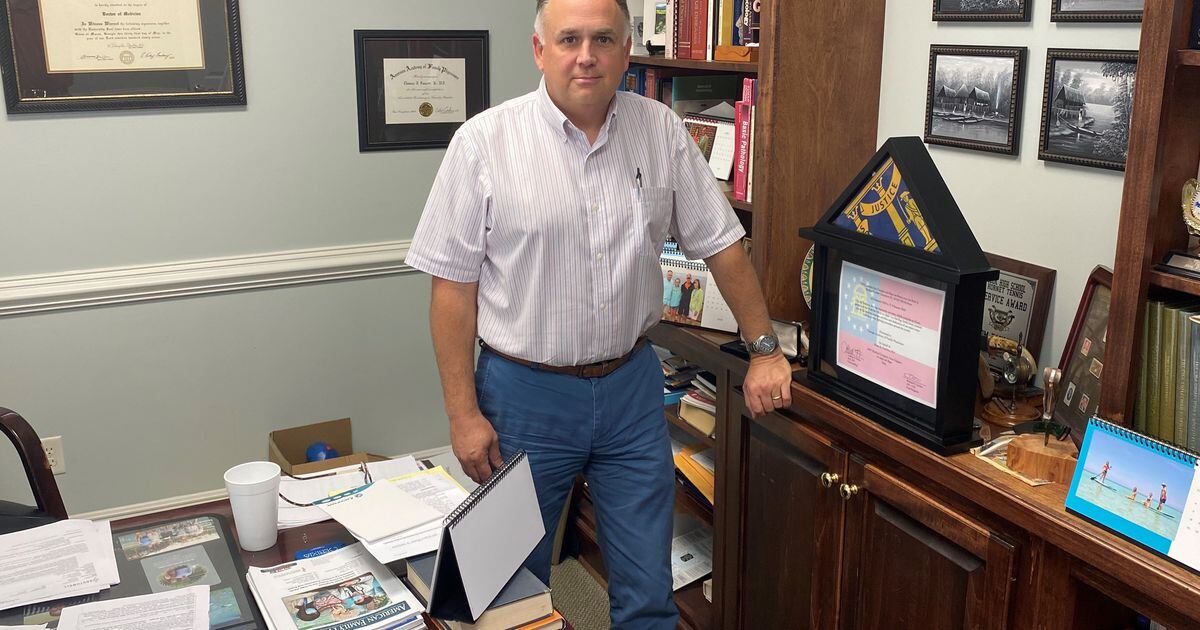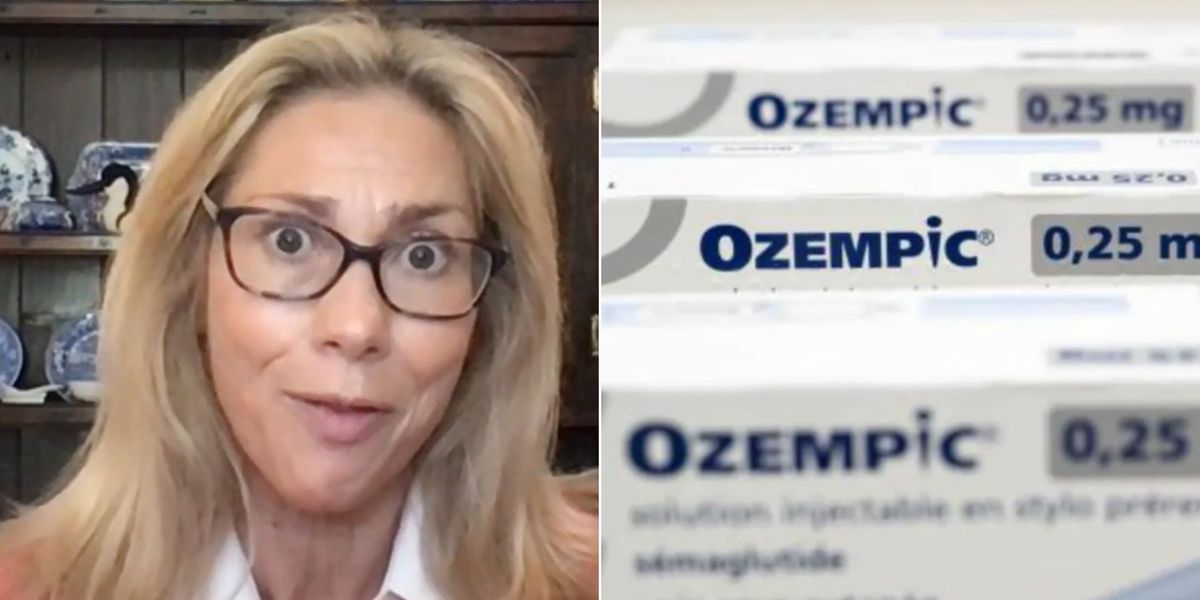
Walker tried to determine an ambulance service primarily based in Statenville, the one-stoplight county seat in Echols, however the price of offering one was projected at $280,000 a yr. Without trade to prop up the tax base, the county couldn’t give you that form of cash.ExploreA rural Georgia neighborhood reels after its hospital closesIn some ways, Echols displays the well being care challenges confronted in rural areas nationwide, comparable to restricted insurance coverage protection amongst residents, gaps in medical companies and shortages of suppliers.Dr. Jacqueline Fincher, an inner medication doctor who practices in rural Thomson, in jap Georgia, mentioned such communities have a greater share of individuals 65 and older, who want in depth medical companies, and a a lot greater incidence of poverty, together with excessive poverty, than the remainder of the nation.About 1 in 4 Echols residents has no medical insurance, for instance, and virtually one-third of the youngsters reside in poverty, in response to the County Health Rankings and Roadmaps program from the University of Wisconsin’s Population Health Institute.Like Echols, a number of Georgia counties haven’t any doctor in any respect.ExploreHow rural well being care limps alongside in sure communitiesIt’s tough to recruit doctors to a rural space in the event that they haven’t lived in such an atmosphere earlier than, mentioned Dr. Tom Fausett, a household doctor who grew up and nonetheless lives in Adel, a southern Georgia city.About 20% of the nation lives in rural America, however solely about 10% of U.S. physicians observe in such areas, in response to the National Conference of State Legislatures.And 77% of the nation’s rural counties are designated as well being skilled scarcity areas. About 4,000 further main care practitioners are wanted to fulfill present rural well being care wants, the Health Resources and Services Administration has estimated.“Many physicians haven’t skilled life in a rural space,” mentioned Dr. Samuel Church, a household medication doctor who helps practice medical college students and residents within the northern Georgia mountain city of Hiawassee. “Some of them thought we have been Alaska or one thing. I guarantee them that Amazon delivers right here.”Rural hospitals even have bother recruiting nurses and different medical personnel to fill job vacancies. “We’re all competing for a similar nurses,” mentioned Jay Carmichael, chief working officer of Southwell Medical, which operates the hospital in Adel.Even in rural areas which have physicians and hospitals, connecting a affected person to a specialist could be tough.“When you may have a trauma or cardiac affected person, you don’t have a trauma or cardiac crew to deal with that affected person,” mentioned Rose Keller, chief nursing officer at Appling Healthcare in Baxley, in southeastern Georgia.CaptionDr. Zita Magloire, a household doctor in Cairo, Georgia, says entry to psychological well being remedy for sufferers is a main downside in rural areas. “It’s virtually nonexistent right here,” she says. (Andy Miller for Ga. Health News)Credit: Andy Miller / Georgia Health NewsCaptionDr. Zita Magloire, a household doctor in Cairo, Georgia, says entry to psychological well being remedy for sufferers is a main downside in rural areas. “It’s virtually nonexistent right here,” she says. (Andy Miller for Ga. Health News)Credit: Andy Miller / Georgia Health NewsCredit: Andy Miller / Georgia Health NewsEntry to psychological well being care can be a main downside, mentioned Dr. Zita Magloire, a household doctor in Cairo, a metropolis in southern Georgia with about 10,000 residents. “It’s virtually nonexistent right here.”A map created at Georgia Tech exhibits large swaths of rural counties without entry to autism companies, for instance.One issue behind this lack of well being care suppliers is what rural hospital officers name the “payer combine.”Many sufferers can’t pay their medical payments. The CEO of Emanuel Medical Center in Swainsboro, Damien Scott, mentioned 37% of the hospital’s emergency room sufferers haven’t any insurance coverage.And a giant share of rural hospitals’ sufferers are enrolled in Medicaid or Medicare. Medicaid usually pays lower than the price of offering care, and though Medicare reimbursements are considerably greater, they’re decrease than these from personal insurance coverage.“The downside with rural hospitals is the reimbursement mechanisms,” mentioned Kirk Olsen, managing associate of ERH Healthcare, a firm that manages 4 hospitals in rural Georgia.Georgia is one in all 12 states that haven’t expanded their Medicaid applications below the Affordable Care Act. Doing so would make further low-income individuals eligible for the general public insurance coverage program. Would that assist? “Absolutely,” mentioned Olsen, echoing the feedback of virtually everybody interviewed throughout a monthslong investigation by Georgia Health News.“If Medicaid was expanded, hospitals could turn out to be extra viable,” mentioned Dr. Joe Stubbs, an internist in Albany, Georgia. “So many individuals go into a hospital who can’t pay.”Echols County isn’t the one place the place ambulance service is spotty.Ambulance crews in some rural areas have stopped working, leaving the remaining suppliers to cowl higher distances with restricted sources, mentioned Brock Slabach, chief operations officer of the National Rural Health Association. It’s tough for a native authorities to afford the price of the service when affected person volumes in sparsely populated rural areas are very low, he mentioned.“If individuals aren’t cautious, they’re going to get up and there’s not going to be rural well being care,” mentioned Richard Stokes, chief monetary officer of Taylor Regional Hospital in Hawkinsville, Georgia. “That’s my massive fear.”— This story was produced by Andy Miller, editor of Georgia Health News, in cooperation with KHN (Kaiser Health News) a nationwide newsroom that produces in-depth journalism about well being points. The Arthur M. Blank Family Foundation contributed funding for the reporting of this text.
https://www.ajc.com/life/health/rural-communities-left-hurting-without-a-hospital-ambulance-or-doctors-nearby/R4HYR2QNMRFR7PXTXVPP5O3UKE/




